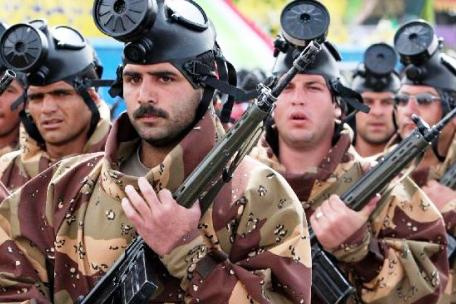Iran and the West’s Strategy of Endless War

By: Heshmatollah Falahatpisheh
Addressing his Israeli colleagues this summer, Gabi Ashkenazi, the former Israel Defense Forces’ Chief of General Staff confessed that an attack on Iran could wreak havoc on Israel. Once can read into Ashkenazi’s remarks in different ways: a hint that Iran has gone nuclear, or a confession that Iran differs from all those Arab states victimized by the ‘endless war’ strategy of the West since 1947.
Sixty-three years earlier, when the European powers and the US began the process of establishing the state of Israel , the Muslim Middle East showed a harsh reaction. The war broke out in the Holy Land in an unfortunate juncture, i.e. while the Arab nations -that had gained independence after the fall of the Ottoman Empire- were preoccupied with the nation-state building process. From that time on, the Western countries have closely supported Israel; evident in six extensive wars that the Jewish State has waged against the regional countries. They have officially backed the regime to assassinate Muslim civilians and military, and have not hesitated to clarify their strategy of preserving Israel as their crucial foothold in the Middle East.
The series of Western wars in the region are now dictating the ‘creation’ of a new enemy. The latest report by Yukiya Amano, the General Director of IAEA, is aligned with this objective. Unprecedentedly, the Japanese diplomat has acted like a CIA or MOSSAD agent: while the previous reports observed the unwritten ‘fifty-fifty’ rule, that is, an equal share for both technical-legal and political content, the new report is thoroughly political. Not presenting a single piece of credible evidence, Amano has accused Iran of a 'weaponized' nuclear program. Thus the new attacks have been launched against Iran. The reaction displayed by the Non-Aligned Movement, China and Russia in the IAEA Board of Governors proves that the report is not a full reflection of what the agency’s members actually think of Iran’s nuclear program, but fuel for the US' and Israel's media propaganda.
The Supreme Leader Ayatollah Khamenei’s reaction against the perpetrated threats was outstanding, as he stated that the Iranian nation will cause regret for any country that is even thinking of attacking Iran. His remarks imply Iran’s readiness to take on preemptive measures. Our bitter experience of West-instigated wars in the Middle East, especially the devastating war with Saddam Hussein’s Iraq in the 1980s, has taught us not to act ineptly vis-à-vis any threat. Based on international conventions, a war begins when one party starts deploying forces in a fashion which indicates aggressive intentions according to the military norms. Preemptive war is justifiable in this context. With an eight-year war experience, Iranians have turned into seasoned regional military strategists, perceptive enough to know what are the enemies’ intentions.
Throughout all those years of defending our territory in an imposed war, the West impeded Iran’s diplomatic efforts in the UN to cite Iraq’s aggression against Iran, and, unfortunately, the same story is happening today, as we mark the twentieth anniversary of IAEA’s abuse of its authority to deny Iran’s nuclear rights. They expect Iran to set aside its nuclear program and dispense with self-reliance in nuclear technology, and subsequently the 700 related scientific and industrial disciplines. Iran has been even denied the 20-percent enriched uranium for its Amirabad nuclear plant, needed for purely medical purposes, and hundreds of medical patients have been forced to leave the country for treatment, not possible for many others due to the high cost. Interestingly, while Israel -the single N-bomb possessing entity in the Middle East- defies the calls to join the IAEA; against the NTP regulations, it has provided part of the intelligence material on Iran’s nuclear plan for Amano’s latest report.

